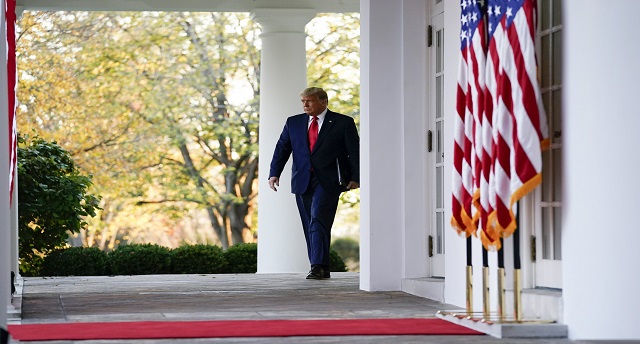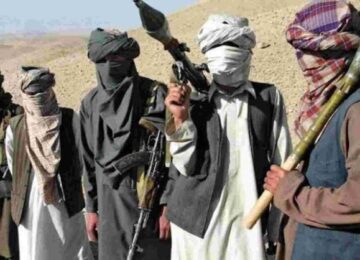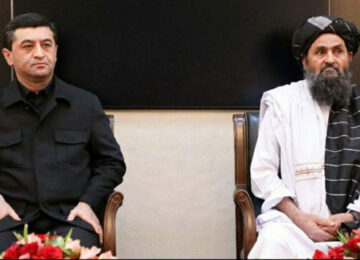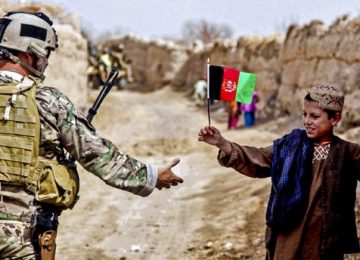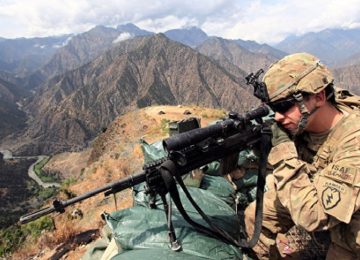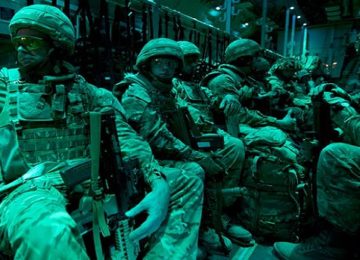November 19, 2020
The recent US decision to draw down its forces from Afghanistan has been officially announced by Pentagon. While making the announcement, the Acting Defense Secretary-Christopher Miller, said the decision was made in keeping with President Trump’s promise to get US forces back home from the forever wars. As part of the drawdown plan, US intends to reduce the number of troops to 2,500 from current 4,500 in Afghanistan by next year’s mid-January. It is the same time, when US troops size in Iraq would also be reduced from the present count of 3,000.
The Trump administration has voiced the decision to be consistent with the US strategic objectives, supported by the American people. So far, the casualties faced by US’ troops in both Afghanistan and Iraq have been 6,900 with the toll of the wounded mounting to 52,000. According to the Acting Secretary, downsizing troops would not mean an end to the mission as the remaining forces would continue to operate without any degradation in capabilities. The troops’ downsizing decision was the most expected move, as the recent chain of top appointments at Defense Department, from firing of Mark Esper and other important officials to the installation of Christopher Miller as Defense Secretary and Col. MacGregor as his advisor, portended.
However, the close observers of Afghanistan around the policy circles have raised their concerns regarding US troops drawdown. The country is facing spike in violence, reportedly 50% above the average levels for the ongoing year, since the negotiations between the Afghan Government and Taliban began in September, 2020. General Austin Scott Miller-Commander NATO’s Resolute Support Mission and US forces in Afghanistan, has also warned against the insurgent assaults as being inconsistent with the withdrawal agreement between US and the Taliban, and were undermining the ongoing Afghan peace talks.
It is a tumultuous time when Kabul is trying to strike out a peace deal with the insurgent group, despite the incessant violence and shrinking financial support from the foreign powers, partly due to the pandemic. The conclusion of the Doha Agreement on February 29, 2020, between US and Taliban, resulted in high expectations for the Afghan government and Taliban, to sit across the negotiating table and decide their future. Yet it took another six months for them to kick start the dialogues after grappling with the issue of prisoners’ exchange. Since then the talks at Doha, are witnessing many issues, slowing the pace and often stalling the talks. These issues range from procedural issues, finalization of the formal agenda for the peace dialogues to the post-peace political system of Afghanistan.
Given such a state of affairs, the decision aimed at troops’ reduction might deal a dangerous blow to the peace process. Critics have long voiced their concerns that the Taliban are more interested in buying time until American forces leave than in trying to reach a political settlement. A hasty withdrawal might have repercussions for the Afghan forces on the ground too, who have reportedly felt demoralized due to escalating violence. Meanwhile, US forces also provide Afghan forces with air cover and other military aid and NATO allies with troops on the ground.
Similar concerns have also been echoed by NATO Secretary-General Jens Stoltenberg who declared that “The price for leaving too soon or in an uncoordinated way could be very high.” He is further reported to have said that Afghanistan risked once again becoming a platform for international militants to organize attacks. The decision has further been considered a “mistake” by Republican Congressman Mac Thornberry as cutting troop numbers run the risk of undermining the negotiations, currently underway aiming to bring an end to fighting in Afghanistan with some as Senator Ben Sasse, the member of Senate Intelligence Committee, calling it a “weak retreat, not grounded in reality and will make the world a more dangerous place.”
The author Tooba Altaf is an International Relations graduate while working as a Researcher at the Centre for Research and Security Studies (CRSS), Islamabad.
© Center for Research and Security Studies (CRSS) and Afghan Studies Center (ASC), Islamabad.



